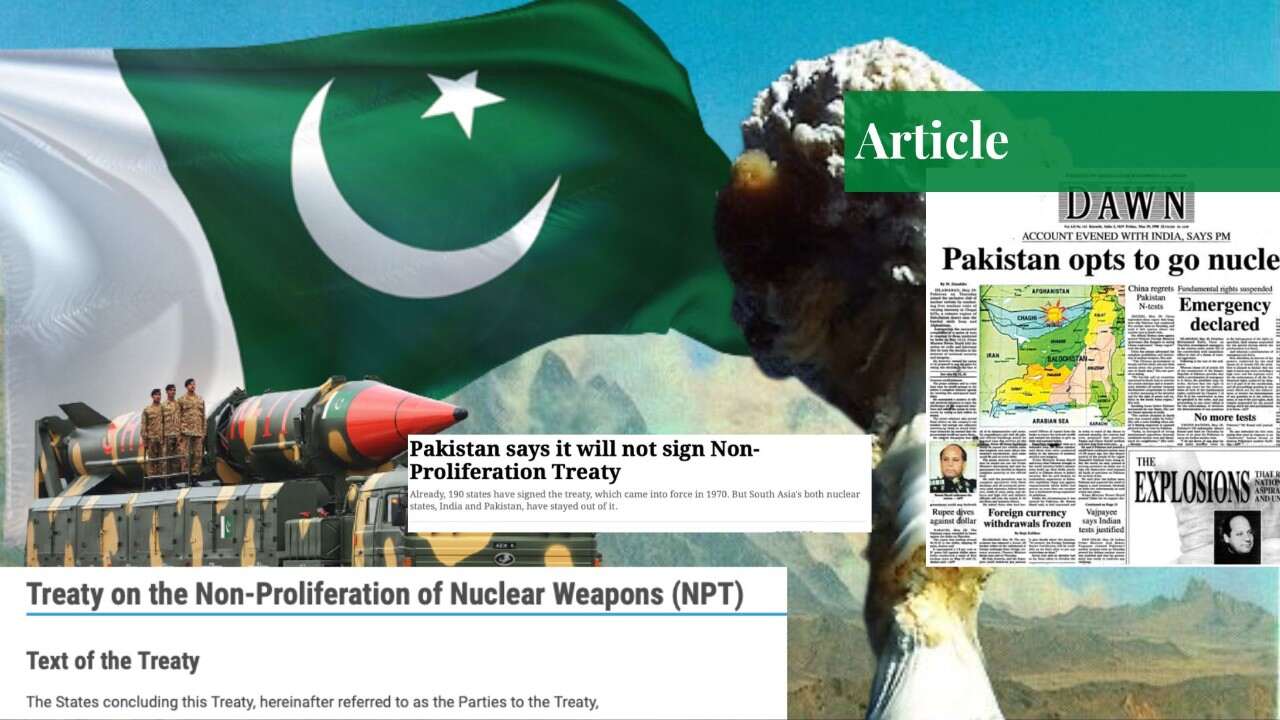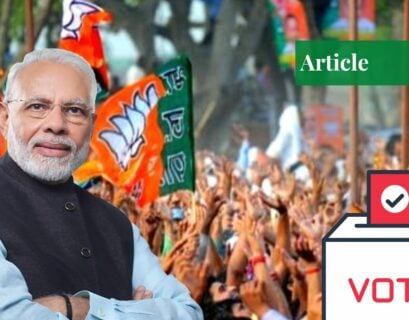Ms Hurria Binte Abdullah is pursuing a BS in Public Administration from NUST.
Introduction
In the past, Pakistan, as an early enthusiast of arms control and disarmament, presented the normative argument for the formation of the Treaty on the Non-Proliferation of Nuclear Weapons (NPT) and suggested many recommendations for it. Until the 6th session of the UN General Assembly, Pakistan remained committed to eradicating weapons of mass destruction.
Later, Pakistan shifted its stance from normative to strategic, refusing to sign the NPT both when it was a non-nuclear-weapon state and when it became a nuclear-weapon state (NWS).
Strategic and Military Misalignment with the US
Pakistan took multiple steps to ensure its security by concluding military alignment pacts with the US such as CENTO (Central Treaty Organization) and SEATO (Southeast Asia Treaty Organization). However, the US provided India with a lot of aid during the Sino-Indian war of 1962, despite India’s non-alignment with the western bloc which created distrust and disappointment for Pakistan with the US as a military ally.
This distrust rose to multiple folds when India and the US signed a treaty under which the US was to supply enriched uranium (a fissile material) to India’s Tarapur Atomic Power Station for a period of 30 years. As a result, India acquired its nuclear weapons of mass destruction in 1974 and carried out nuclear explosions in the Rajasthan desert. This identifies a significant drawback of the NPT which is that it doesn’t sanction the NPT signatories taking part in nuclear deals with a non-nuclear weapon state.
On the other hand, the Pressler Amendment of 1993 stated that “Pakistan would only be provided with the aid if US President certifies that Pakistan doesn’t have nuclear weapons.” Despite having the certificate from President, Pakistan was sanctioned and not provided aid. The US alleged that Pakistan had imported M-11 short-range missiles from China in 1993, but later they themselves said that there was no proof of such an exchange.
India’s Non-Acceptance of the NPT
Pakistan and India have been hostile towards each other since partition, with the major point of conflict being the Kashmir issue which has yet to be resolved. As a result, Pakistan isn’t willing to sign the treaty unilaterally because it would leave it at the mercy of India in South Asia. Moreover, India’s potential inclusion in the Nuclear Suppliers Group (NSG) could further amplify a nuclear arms race.
The NPT’s Loopholes
Pakistan also didn’t sign the NPT because of the inherent loopholes within the treaty, as it doesn’t provide the complete codification for global zero (a world without nuclear weapons). Pakistan attributes it as a discriminatory treaty; according to it, only five member states can acquire the status of NWSs, and any member joining NPT after 1963 would join it as a non-nuclear-weapon state.
In 2010, Pakistan’s foreign ministry asserted that Pakistan had left the previous stance of signing the NPT as a non-nuclear-weapon state and that it would only join as a recognized NWS amid the nuclear arms race and imbalance in South Asia.
Finally, another important concern is regarding the future commitments and effectiveness of the NPT. By concluding the nuclear deal with India, the US violated articles 1 and 2 of the NPT. These violations are evident as follows:
“undertake not to transfer to any recipient whatsoever nuclear weapons or other nuclear explosive devices or control over such weapons of explosive devices directly or indirectly.” (Article 1)
“the non-nuclear weapon states party to the treaty undertakes not to receive the transfer from any transferor whatsoever of nuclear weapons or other nuclear explosive devices or of control over such weapons or explosive devices directly or indirectly.” (Article 2)
These facts blur the future and effectiveness of the NPT as it lacks a mechanism to sanction such violations. Also, any country could leave the NPT whenever it wanted under article 10 which states that each party “has the right to withdraw from the Treaty if it decides that extra-ordinary events, related to the subject matter of this Treaty, have jeopardized the supreme interest of its country.” For example, North Korea left the treaty and acquired nuclear power in 2006.
Conclusion
It is highly discouraging for Pakistan to join the treaty as a non-nuclear-weapon state because it would threaten the national peace and sovereignty of Pakistan amid instability and nuclear imbalance in South Asia.
Considering the threats to national interests and security, Pakistan wouldn’t change its strategic approach towards the NPT until and unless Pakistan’s concerns are addressed at the inter-state, regional, and international levels. Pakistan’s concerns signify that the NPT should be revised as a non-discriminatory treaty, giving a detailed overview of future commitments for an unbiased non-proliferation program as well as a mechanism for accountability.
If you want to submit your articles and/or research papers, please check the Submissions page.
The views and opinions expressed in this article/paper are the author’s own and do not necessarily reflect the editorial position of Paradigm Shift.



















